
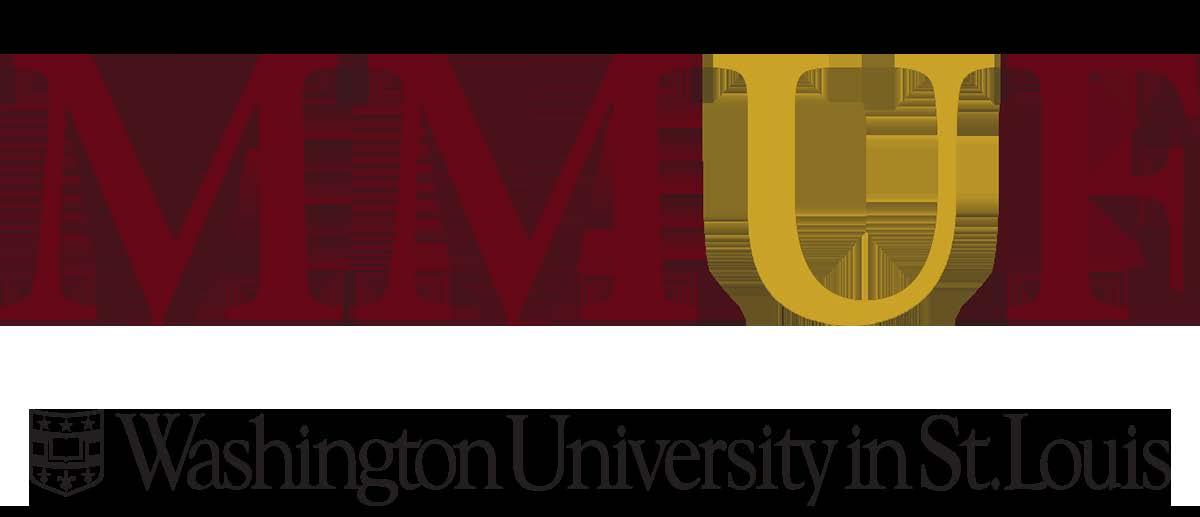

Mellon Mays Undergraduate Fellowship 2023 Magazine Washington University in St. Louis
DREAM: Imagining Academia's Futurity
Nina Simone
“I wish I knew how it would feel to be free I wish I could break all the chains holding me I wish I could say all the things that I should say Say 'em loud, say 'em clear For the whole round world to hear I wish I could share all the love that's in my heart Remove all the bars that keep us apart I wish you could know what it means to be me
Then you'd see and agree That every man should be free I wish I could give all I'm longing to give I wish I could live like I'm longing to live I wish I could do all the things that I can do Though I'm way overdue, I'd be starting anew
Well, I wish I could be like a bird in the sky How sweet it would be if I found I could fly Oh, I'd soar to the sun and look down at the sea
And then I'd sing 'cause I'd know, yeah Then I'd sing 'cause I'd know, yeah Then I'd sing 'cause I'd know I'd know how it feels
I'd know how it feels to be free, yeah, yeah Oh, I'd know how it feels Yes, I'd know, I'd know how it feels How it feels to be free, Lord, Lord, Lord, yeah”
“I Wish I Knew How It Would Feel to Be Free”
1
L etter from the Editor
 Olivia Neale Kerr, 2022-2023 Mellon Intern
Olivia Neale Kerr, 2022-2023 Mellon Intern
How can one compile what appears to be a simple magazine to encapsulate an entire year of Mellon Mays? I found it incredibly difficult. There is so much to say, and there is so much emotion behind what can be said.
As I reflect on the final year of my undergraduate education, I cannot help but feel a multitude of emotions: nostalgia, happiness, sadness, and pride. Pride is a tricky emotion to have—it has the capacity to vanish in a brief moment or morph into arrogance. It is hard sometimes to find pride in what one accomplishes as an individual with multiple intersecting identities in a world built on the oppression of the marginalized. What does it mean to be proud? Must it always be present when one does something in particular, or can it be an ever-present essence and emotion that one can feel deep within themselves? I prefer to imagine the latter.
Through my experience in the Mellon Mays Undergraduate Fellowship at Washington University in St. Louis, I realized that one cannot navigate an academic career alone. Forging bonds with the different cohorts I had the honor of sharing such a comforting, welcoming space with my junior and senior years, I found community. The ever-looming feeling of impostor syndrome never goes away, but in Mellon Seminar I felt like I found a place in which I felt like I belonged. I have always struggled with the feeling of belonging as a Black queer femme attending PWIs for the entirety of my schooling. However, Mellon seminar was a reprieve—it provided a space in which I could rest, breathe, and, most importantly: dream.

It is not easy to imagine a world outside of the one we live in—one full of pain and suffering regarding widespread institutionalized oppression. Systems of oppression manifest themselves in academia—marginalizing different areas of study and those who study them. However, as burgeoning scholars, I believe it to be our duty to practice radical imagination. Thank you to all who have guided me on my academic and personal journey as I pursue my dreams.
My advice to all: Rest. Breathe. Imagine. Dream.
2
2022-2023 MMUF Fellows SENIORS
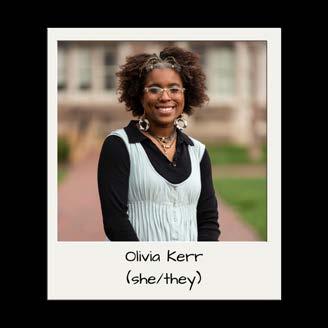
This 29th cohort entered Washington University’s MMUF virtually due to the Covid-19 pandemic. Despite the challenges associated with physical distance, these 2021-2023 Fellows have built lasting bonds with one another—a testament to the power of “fellowship.”
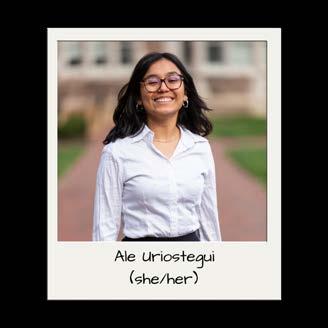
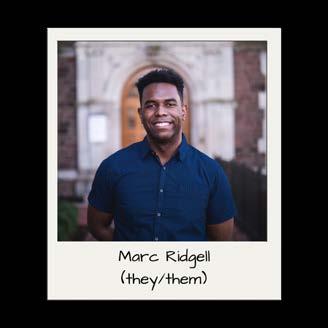

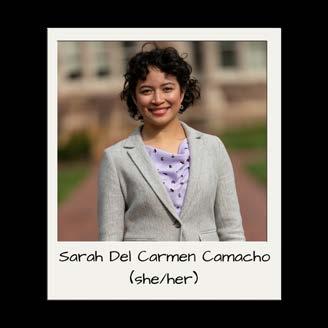
3
2022-2023 MMUF Fellows JUNIORS
This 30th cohort in Washington University’s MMUF has exhibited individual and collective resilience as they have begun their first year as independent researchers and enter the Fellowship with such creativity that embodies MMUF’s mission.
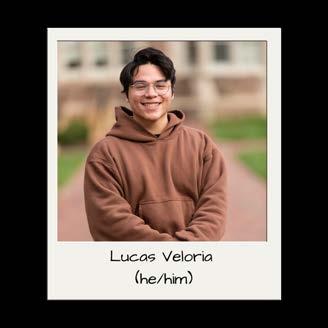
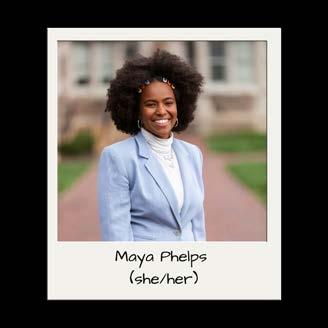
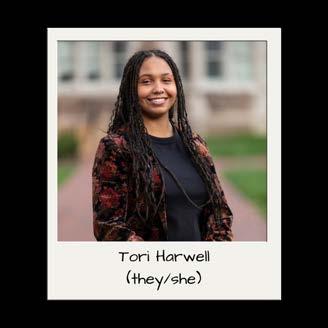
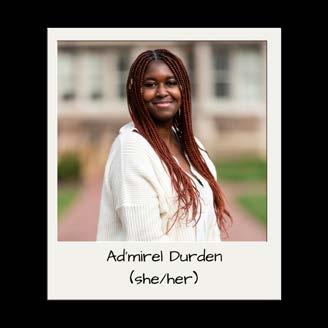
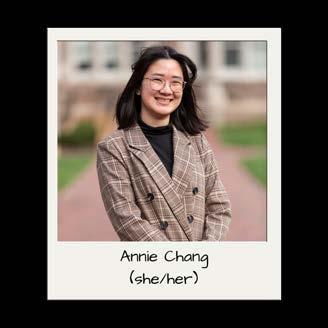
4
Letter from the Faculty Director
Dr. Jonathan Fenderson

Los Angeles, Chicago, New York City, Palo Alto, Providence, Durham, New Orleans, Philadelphia, Washington DC, Columbia (MO), Oxford (England), London, Durban (South Africa), Accra (Ghana)…these are just a few of the places around the world that our Mellon Fellows have journeyed in the last couple years, as they conduct research and pursue scholarly opportunities. While this list is not exhaustive, it offers a glimpse of the incredible opportunities fostered by the Mellon Mays Undergraduate Fellowship Program (MMUF). We know that imagining the world is an integral part of intellectual life, but traveling and seeing the world is one of the greatest, yet understated, rewards that a life of the mind can afford.
As our graduating seniors soar to new heights and put the finishing touches on their undergrad careers, I remain encouraged by the ways they have learned to maximize each and every opportunity that has come their way. Our junior class (or should we say “rising seniors”), also known as Cohort 30, has done the same—joining summer research programs, studying abroad, and advancing scholarship that is both innovative and meaningful. Perhaps even more important, each cohort has understood the value of helping the subsequent class; embodying the true spirit of MMUF. As a result, each cohort pushes a little bit further, expanding the intellectual footprint of our Program, and marking our presence in different regions of the globe. This ambition to see the world through our work, to venture to different corners of the earth, and to pursue new opportunities born out of intellectual interests is what excites me most about working with the incredibly talented students in MMUF. And if there’s anything we can surmise from our newly recruited Fellows, Cohort 31, it is that the students are applying to the Program with this understanding and ambition in mind!
As our Mellon Fellows—past and present—continue to make their mark on the world, and as our Program continues to thrive, we also continue to amass interpersonal and collective debts of gratitude; to our faculty mentors, to supportive staff members, to previous directors, to the College of Arts & Science, and to many more. Each new debt is further evidence of a shared belief in the value of higher education, and the great rewards that await those who pursue a life of the mind.
5
Letter from the Administrative Director
Dean Wilmetta Toliver-Diallo

As we close the curtain on our spring semester, our Mellon Mays Undergraduate Fellowship Program at Washington University has much to celebrate. This year, Mellon returned to the in-person Regional Conference, our senior Fellows are being celebrated across the University for their contributions to campus and we selected Cohort 31!!! With our new cohort, we bring many new faculty into our Mellon family and we are excited to work with them. Cohort 30 had a very strong year as well—many participated in summer programs and others are planning to attend summer programs in 2023. It will be exciting to see how their projects morph and develop as they head into their thesis year.
I recently returned from the Mellon Mays Undergraduate Fellowship Coordinator Conference. The conference was energizing and confirmed the power of MMUF in supporting undergraduate research and preparing students to impact the academy in tremendous ways. I am proud that Washington University has contributed to the Foundation's objectives; we are indeed a model program.
I have worked with Mellon Mays Undergraduate Fellowship Program in an official capacity for four years and in those short four years, there have been positive changes in our program at Washington University and nationally. The pandemic shifted the way many scholars approached their research questions and methodology but this was for the better. In order for institutions to become more inclusive, we have to examine the way we understand knowledge and challenge the status quo. However, we must remain rigorous in research and analysis while balanced mentally and emotionally. As scholars, we are not siloed from global happenings and attacks on our identity or freedoms. All of this is reflected in our scholars’ work. We hope you enjoy this edition of our Mellon Magazine.
6
Graduate Mentor
 Christina Smiley
Christina Smiley
To those who will come after me:
“No man is an island entire of itself.”
John Donne
Night falls. The rest I crave never comes easily. Staring into the darkness, my scrambled, sleep-deprived mind wanders. I consider just how different life could be. If I stayed in that small country town, would I be happy? Satisfied? Fulfilled? Would—A calmness overtakes me as I, snuggled under my emerald green blanket, become amazed by how different my aspirations are now; I attribute this to music. Music led me to college and prompted me to continue my studies, hoping to inspire students who may (or may not) identify with offshoots of my intersectionality. During my undergraduate years, I overcame internal and external struggles. I thought I was not smart enough, lacked support from loved ones, and barely made ends meet financially. Yet my educational journey has taught me that I am capable of anything I set my mind to, and most importantly, I am not alone. My research interests relate directly to my unique experiences as a Black woman who grew up in a fundamentalist organization. Ultimately, I strive to invest in a path that helps others, believing my future vocation will challenge and further scholarship on music, race, and religion. For me, Washington University has provided resources and a community of students and faculty who support my research journey. Most importantly, my program allows for my inquisitive nature to thrive.
If I could offer advice to those who will come after me, it would be to:
1. Find communities that challenge and support you.
2. Create close, authentic relationships with those who have gone before you.
3. Take note of your personal progress (don’t compare yourself to others).
4. Always remember your “why.”
Perhaps this advice is self-explanatory and simple, yet I cannot overstate its importance in my journey thus far. Charting a new path is both exhilarating and terrifying; I have often felt like I am standing between worlds, but a healthy balance between selfdetermination and a community is paramount for success.
7
Senior Spotlight
Annie Chang Spotlights Marc Ridgell
Tell us a bit about what personally motivated your project.
I’m from Chicago and moved between the city and the suburbs, … I’ve always been involved in social justice work, but I was trying to find a lens into how specifically the very weird things I was seeing about urban inequality as well as the contradictions around homophobia, racism, transphobia, and classism. The summer after I graduated high school, I went to Chicago Pride with my friends, and I saw a lot of very weird things there, from police marching in the parade to racial self-segregation throughout the parade itself. This question came with me when I entered Washington University. It became my research question. I began to take classes and read… and the more I got to read stuff in queer theory, queer of color critique, and critical geography, I was really able to understand contextually what I was witnessing. I originally applied to Mellon with a project that was based solely in Chicago, interviewing Black LGBTQ people in Chicago about their experiences accessing Boystown, which is the gay neighborhood in Chicago and the home of the Pride Festival. When the COVID-19 pandemic hit, I was still invested in those same experiences. I also knew that I had to switch my methods because I wasn’t 21 yet. I just turned 21 and even to access those events there, you need to be of age. I’m glad that I was able to do an archivally-based project about how Black LGBTQ people organized in Chicago. The more I began to read, I began to understand how cities and gay neighborhoods and other neighborhoods are the same entity, so I can’t study gay neighborhoods without studying how the city functions itself. I did a research fellowship in New York City with the Schomburg Center and had a chapter on New York in my thesis about the same thing.

What advice would you give to juniors (or future Mellons) about conducting independent research?
First and foremost, I want to say: understand and think big picture and professionally, what you want out of Mellon. Mellon is intended for undergrads to get PhDs, and this is a great time to figure out if that life truly is for you. If you know at the end of it, you want to go into academia, you want to get a Ph.D. even if it’s not straight through, knowing the name and power in Mellon Mays will give you the motivation and discipline to pursue your project. The fact that I’m in Mellon Mays has opened doors in terms of scholarships I’ve applied to and Ph.D. programs I’ve applied to, especially because of the type of training I’ve received through Mellon Mays. Thinking big picture will give you the motivation to do the research you want to do.
Second, I would say keep reading. Keep reading outside of class: just read research articles and books, either related to your project or not. If there’s a scholar’s reading in a class that you find interesting, look up more of their work because that will give you a bigger picture of the type of scholarship that’s already out there. Someone has made an argument
8
similar to yours, but it is about your unique lens to a project. Equally, it is about the methods and sources you use to craft your narrative. So, keep reading and re-reading, ask for help when you need it, and think about a clear outline for your thesis in your junior year so you are not scrambling between junior and senior summer.
As of this current moment, what kind of scholar do you see yourself becoming?
I see myself as a scholar who first takes care of myself. I believe in really investing your time in your wellness. I know that school and the pressures of late capitalism tell us not to but instead to prioritize our work (and research is work). However, especially if you’re studying marginalized communities, you cannot be caught up in the capitalist measures of it. You need to be humancentered and being human-centered is centering yourself and your own needs. I would say that is the type of scholar I want to become, and I’m still working on the “centering myself” part. I want to study Black, queer, and trans people because it’s been around the academy for around 30 years with some foundational texts but there’s still work to be done and scholarship to be produced on Black, queer, and trans history, and about the culture of oppression that Black LGBTQ people live under. I see myself contributing to the field of Black queer studies and queer of color critique. So, I want to become a critical Black queer studies scholar who is human-centered and takes care of themself as well as the people they interact with within their community.
What’s one of the most memorable experiences from your time in Mellon Mays at Washington University?
One of my most memorable experiences - I feel like people are already going to say this - but at the end of my junior year, a few Mellons and I went to this escape room in downtown St. Louis. That was so funny because I can’t solve a puzzle for anything. I was struggling so much but being around my friends outside an academic setting was just so
powerful because it was like, wow, we are real people and we are great young thinkers, but we can’t solve how to get to the next part. Or maybe it was just me; I probably couldn’t have done the escape room by myself, but it was a very fun thing to do and hopefully, we get to do that at the end of this year because that was so fun.
What is your greatest takeaway from being a part of the Mellon Mays program?
My greatest takeaway—this is both being a part of Mellon Mays and being a part of WashU in general and just being involved with a lot on campus – is that I have learned how to advocate for myself as well as being prepared for the pressures of the academy. Without Mellon, I wouldn’t have known what to do. I think being in coursework already and also preparing to write a thesis for two years was a very challenging experience, but on top of that, I was the producer for Black Anthology, I am also an RA, a Deneb Star mentor for first years, and CDI employee. I was just doing so much that I realized how much the academy or universities can exploit people and take from people, especially younger students. In Mellon, whether it be through class discussions or individual conversations with other students and faculty who are either my thesis advisors or people involved with the program, they really taught me that academia is hard and yes, you’re going to work a lot, but you might as well get as much money outside the academy as you can to be able to get compensated for the labor you’re doing.
Mellon also taught me the importance of community and just being a person. I am about prioritizing myself because research can be a lot (writing for hours, reading articles, and receiving critical feedback); it’s a very individual process and if you don’t remove yourself from that and experience the real world and real people, it can be very isolating. Mellon taught me to put fellowship and community first, and also put myself, my cohort, and other people in my life at WashU and beyond first. Then see research as a passion and job that I’m doing vs having research taking my full self, if that makes sense.
9
Mentor & Mentee Interview
Dr. Clarissa Hayward in Conversation with Lucas Veloria

What are some things you like most about academia and being a professor?
I like the fact that I get to learn all of the time. That’s not the case for most people in most jobs, and it’s really wonderful. I like the fact that, within some fairly broad parameters, I am able to decide what I want to research and teach. And I like the community. I have very interesting colleagues, both here at Wash U and also in other universities—people I’ve gotten to know over the years at seminars and conferences and through various kinds of collaboration. And of course the students!
As you have progressed as an academic and scholar, how have your research interests changed over time?
My research interests have not changed dramatically over time. I have a core set of questions I’m interested in, and each new project has grown out of the last. I started out, early in my career, making the case for theorizing and studying power as a structural phenomenon. I then focused on structural racial power in the US, looking in particular at the period around the time of the US. Currently interested in the question of structural change: why and how it is that people sometimes succeed in enacting significant and lasting change to unequal power relationships.
What, in your opinion, are the most pressing issues in either political science as a field or academia as a whole?
I can’t imagine a more pressing issue than climate change. Scholars are prioritizing it across many disciplines. Political science is no exception since so many of the major obstacles to addressing it are political.
With the increasing polarization of the political climate and landscape, how do you think political science as a discipline will respond and adapt to addressing these divisions in our political culture?
Empirical political scientists study the causes and effects of polarization, and political theorists (my specialty, which tends to focus not only on explanation but also normative analysis and critique) study the harms of the division of political society into factions with an “us vs. them” identity. However, no academic can address, in the sense of solving or beginning to solve, this problem. Political actors, including but not limited to elected officials, party and media elites, and voters have to make choices and take political actions that reduce polarization. Political scientists can help people understand this problem and why we should address it, but they can’t address it for the democratic public.
10
What do you believe the future of your discipline(s)/ interdisciplinary field to be?
What do you theorize will be the future of this academic field(s) and their real-life implications/importance?
Ad’mirel Durden:
Sociology, as a discipline, focuses on trying to understand and conceptualize the social world. Thus, I believe the future of sociology will focus more on transformation as opposed to critiquing systems. I think it is vital to discuss transformation within Sociology because at times, it can be frustrating to read about these inequalities, especially if you are someone who has experienced these inequalities fi rst-hand, and it can feel hopeless. However, Sociology focusing on the ability to transform society and recognize that inequalities are not inherent to any society can provide a sense of optimism for people, which is crucial in addressing social inequalities and improving the material conditions of all people.
Savannah Henderson:
Combining my studies in Women, Gender, Sexuality Studies, African & African American Studies, and Sociology, I consider myself a Black Feminist Sociologist. The reality of sitting within and between multiple different fields is that they are constantly evolving and therefore the definition of what it means to be a scholar in said fields is also always changing. I am not entirely sure what the future holds (I am currently trying to live in the present more instead of always trying to predict the future), but my hope would be that Black Feminist Sociology continues to defy the standards of traditional knowledge production by valuing anecdotal evidence as worthy of academic acceptance and analysis. I hope that Black Feminist Sociology continues to center the experiences of Black women, not just nationally but globally. I remain optimistic about the continued growth of the field. In the expansion, I foresee greater representation of Black women in the academy that destabilizes pre-existing notions of which knowledge production is considered valuable.
11


12
What do you believe the future of your discipline(s)/ interdisciplinary field to be?
What do you theorize will be the future of this academic field(s) and their real-life implications/importance?
Sarah Del Carmen Camacho:
My research lies in an interdisciplinary space between China Studies, Latin American Studies, and International Affairs in general. As a Global Studies major, this mixture of content areas and disciplines is necessary. From a China Studies perspective, I predict that the field will produce work on the relationships that China has to develop regions and nations, especially as strategic competition between the U.S. and China intensifies over the next decade. From a Latin American Studies perspective, I am not sure if understanding China will be a priority, but I certainly see increased attention on contemporary engagement with global superpowers like the U.S. and China in the context of postcolonial legacies. As development, military, and trade relations evolve in the future, these fields need to work together to understand the present and record it accurately. We must increase general knowledge on several corners of what we consider “the Global South”, developing a more thorough narrative of these understudied regions that includes the voice of both governments and people in the process.
Tori Harwell:
The path I see for African &African American Studies and Environmental Studies are a slow death due to an unwillingness to shift current exclusionary practices. Or for a radical re-imagination of who and why information is produced. I am cautiously hopeful of the second option, as both these fields and their intersection help protect and theorize things that are deeply important to me personally and professionally. The most intriguing possibility is a widely accessible Black lens on climate change. The emergence of a field of study in the marriages of the two disciplines could help rectify the exclusionary practice inherent to both of them. Currently, in Black studies, the theory is inaccessible and inapplicable to the average reader. Since the tradition’s advent, there has been a shift away from accessibility– articles and books are increasingly riddled with hard-to-parse-apart academic jargon. Mainstream environmental studies struggle to address and conceptualize the link between colonization, white supremacy, extractism, and climate change, thus limiting solutions. Both disciplines must work to bridge the silos imposed on them.
13
Interview with Christina Smiley
Interviewed by Maya Phelps
Christina Smiley is a fi rst-year Ph.D. student at Washington University in St. Louis in the Department of Musicology and also our Mellon Graduate Mentor for the Mellon Mays Undergraduate Research Fellowship. Christina and I sat down to talk about how her personal background and experiences in the academy influence both her research interests and how she approaches her position in the Fellowship. She oriented herself around mentorship and relationships, stating that her relationships paved the way for her to reach the position she is in now. Contrary to my prior belief, Christina was not a Mellon Fellow in her undergraduate studies, she stated, “There was no Mellon program at the University of Miami… one of my [current] professors, Lauren Eldridge Stewart (shoutout to her!) was a Mellon at Spelman… she pitched me to Professor Fenderson… Through all of that, [the Graduate Mentor position] has shown me the value of community. Even though she [Dr. Stewart] was on leave, she took the initiative to make sure I was taken care of. That was huge.” Christina emphasized how important her mentors and professors continue to be to her career, and that it is her goal as a mentor now to create connections similar to those who invested in her success.
Christina being freshly out of her undergrad program gives her a unique positionality to the Mellon Fellows because she can so easily recall the experiences her mentees go through, she explains, “When I came to Mellon in the fall, I was in y’all’s
shoes just the previous semester… In some ways, this puts me in a good position perhaps, or at least I would like to think so, in that I am ahead, but in terms of what is going on in my life and my experiences, I am not so far removed from the undergrad experience. I even went through COVID and had school on Zoom. I can hopefully empathize with you all in a way that senior faculty can’t.” When I asked Christina to reflect on both her position as a younger Ph.D. student and the mentorship that guided her to this position, she emphasized that she would not be here without the connections and relationships she made, stressing the intentionality behind these relationships that she committed to. Her commitment to the future of the academy is mentorship and guidance, she states, “I’m big on trying to be the mentor that my professors were to me to other people. There are folks that are stingy with information, but that is not me. I want to share my experiences because I realize how hard it is to navigate alone and how important it is to have a community. My philosophy is to keep the energy going. The love and support I received from others, it is important that I give that back into the world and into those around me.” That is the work Christina does for our Mellon Program. Her dedication to mentorship shines through in how she offers her time and resources to our Fellows, and we could not be more grateful for this commitment she chose with us!
14
Impactful Articles for Junior Fellows
Annie Chang:
Lori Kido Lopez’s “The Yellow Press: Asian American Radicalism and Conflict in Gidra” is a text that has defined my research project in its current form. Although it may not stand out among the literature I’ve pursued my project, it’s an article I keep returning to because it was what sparked my interest in Gidra and motivated me to switch.
Similar to my approach to Gidra, Lopez conducts a textual analysis of the first two years of Gidra’s run to examine three categories of conflict: internal conflict, external conflict, and produce conflict. Instead of leaning on the notion that ethnic media will shy away from reporting con fl ict that may expose its community’s stability, Lopez deconstructs that notion through her exploration of the ways in which conflict was used to construct Asian American identity. Using the Black press as a point of comparison, she highlights the importance of newspapers like Gidra as a place where people of color can express their voices which they can’t do in mainstream ethnic media.
Lopez sheds light on a facet of the Asian American Movement that is not explored too often: printed publications. Prior to this reading, the books I had discussed the Asian American movement broadly, which meant that the importance of journalism was often not shown in-depth. This article came to me at the right time because I was unsure of where to pivot my project, so when I found Lopez’s piece, it felt like I finally had a sense of direction.
Tori Harwell:
In Hartman’s article Venus in Two Acts, she brings into question what history is and how modern history is to tell the story of those who were purposely forgotten through the lens of the Black Venus. A nameless and storyless woman, a symbol of the endured violence of slavery, Hartman argues that their footprints are scribbled in the margins as a means to forget. Thus, she reveals an in pass for the modern historian trying to right the fact that “the archive of slavery rests upon founding violence. This violence determines, regulates and organizes the kinds of statements that can be made about slavery and as well it creates subjects and objects of power” (Hartman 10). She postures that one must tread this impossibility quite carefully by using the methodology of critical fabulation, as “the intent of this practice is not to give voice to the slave, but rather to imagine what cannot be verified” (Hartman 12). The methods and theories she presents in the article are radical and contested. My project hinges on understanding how people’s relationship with the land has been shifted in part due to colonization; and the imposition of gender, sex, and race across different spaces. I have often felt uneasy about the archives I have worked with to gain insight into previous land practice because such a large narrative is missing. Venus in Two Acts brings into question the methods with which historians practice their craft, and in turn, it is a litmus test for me to understand the boundaries of my project.
15
Senior Spotlight
Lucas Veloria Spotlights Savannah Henderson
Tell us a bit about what personally motivated your project.
I read Eloquent Rage by Brittney Cooper and in the book, she mentioned how fat Black women have a harder time finding jobs, romantic partners, etc. This made me reflect on my own experiences with dating/ job interviews/building social networks. I realized that there was more to my identity than being just a Black woman and when you added size into the conversation, it became much more complex. I have always seen research as a pathway to personal healing and growth, so wanting to explore fatphobia against Black women came from a desire to understand my experiences and heal my relationship with my body as well as encourage others to think more intensely about the role of size in shaping personal and professional experiences.
What advice would you give to juniors (or future Mellons) about conducting independent research?
I would tell juniors to build a personal relationship with their mentor. I say this because roadblocks will come up during the research process, whether intrapersonal or external. Having a good relationship with your mentor gives you the space to talk about things outside of research and connect as individuals, not just scholars. My relationships with Dr. Vetta Thompson, Dr. Rebecca Lester, and Dr. Rebecca Wanzo really helped me remember that my worth as an individual was not only tied to my research. They gave me space to talk about personal concerns/ struggles and ask them questions about their lives. Having a good relationship with your mentor is indispensable and your work will be better because of it.
As of this current moment, what kind of scholar do you see yourself becoming?
I am not sure if I know exactly what kind of scholar I see myself becoming, but I know that in whatever I do I will continue to center the voices of Black women. I
always see myself as wanting to write, but I remain unsure about what avenues I will take to continue writing. These next two years I really want to focus on making my work more accessible, so that whatever field I go into that remains centered. But for the next two years, I am giving myself space to adapt to the opportunities I am presented with and to what feels right in the moment.
What’s one of the most memorable experiences from your time in Mellon Mays at Washington University?
One of my most memorable experiences in Mellon was the conference this past October at UChicago. We did not get to do a conference in person junior year, so it was fun to travel and present research so personal to me. I felt significantly less nervous my senior year than my junior year to present, so I was able to enjoy the experience more. I enjoyed the first night most because we spent the night laughing at dinner together and then went to Wingstop and Taco Bell later that night.
What is your greatest takeaway from being a part of the Mellon Mays program?
My greatest takeaway from Mellon is to trust the process and not tie my sense of self to academic achievement. At multiple points throughout the past two years, I was unsure if a thesis would be possible or the best course of action. When I went through difficult periods, I would often stop working on my project until life calmed down a bit. Because of this, I wondered if I would be able to finish my thesis on time, but it got done and is the piece of work I am most proud of. This taught me that taking care of myself always needs to come before productivity and that my work will be better because of it.
16
What do you believe the future of your discipline(s)/ interdisciplinary field to be?
What do you theorize will be the future of this academic field(s) and their real-life implications/importance?
Marc Ridgell:
I plan to be a scholar of Black Queer/Trans Studies who specializes in urban space, late capitalism, and media/performance studies. The recent attempts to ban critical race theory, feminist theory, and queer theory in states like Florida encourage me to keep researching and centering the voices of Black trans and queer people who experience life across urban landscapes.
I believe that Black Queer Studies is contending with two main ideas (of many). First, I believe that scholars in Black Queer Studies are recognizing the predatory effects of late neoliberalism on their own personhood (as Black/queer scholars in the academy). Second, scholars are reckoning with the interlocking identities of what it means to (ethically) be “Black,” “queer,” and/or “trans” in our contemporary world that prioritizes identity politics and has commodified theories like Kimberlé Crenshaw’s “intersectionality.”
As a scholar-in-training who engages in the field of critical geography, I hope to keep up with the times. Media and the fast-growing digital age, as well as climate change, continually impact Black queer geographies. Therefore, I am so fascinated with my future as a sociological and/or anthropological ethnographer, as I get to detail how Black LGBTQ+ people are responding to their systems and geographies in the contemporary moment.
Annie Chang:
Sociology is a field that can lead to great insights into how we navigate the world around us, but its standing as an academic field doesn’t remove it from perpetuating harmful ideologies. Sociology’s position in academia means that we take its findings as legitimate facts, which can be problematic when we question who’s doing research on what communities, especially privileged researchers who go into marginalized communities in order to publish their next article. In accordance with that, Sociology is a discipline that has traditionally been dominated by white academics, leading to the creation of frameworks or theories centered around the white gaze. More attention is now being paid to intersecting oppressions of race, gender, and class, and the field has definitely diversified in recent times. Including more academics from diverse backgrounds is important to decenter a white gaze, but I believe it’s more crucial that we consider our own positionality as people and as researchers. Within communities that we study, we have a certain privilege to come into that community; Sociology can grow if we center the subjects we study as researchers in their own right, as it’s their lived experience that provides the foundation of our work.
17
Mentor & Mentee Interview
Dr. Zakiya Luna in Conversation with Ad’mirel Durden

How did you decide that academia was the right path for you?
Luck! When I first started my undergraduate degree, I was convinced that I’d enter into pre-law. The first class that I took, though, was Introduction to Sociology – and I quickly abandoned that idea. Realizing that you could make a career out of producing (hopefully) meaningful, evidence-based insights about the social world was enough to draw me into the world of academia. I never looked back after that class!
As you have grown as a scholar, how have your interests and career goals changed?
Honestly, not much! In my career, I want to contribute meaningful insights on how and why health disparities are produced, in order to help folks (who are way smarter than me) develop concrete solutions toward population health equity. That’s remained fixed in place since the beginning!
If you could give your younger self advice about being a part of the academy, what would it be?
Don’t waste so much time thinking that you don’t belong here!
What are some of the biggest challenges and some of your favorite parts about being in academia?
Favorite parts: The flexibility to work on what I feel is important; The flexibility in how I organize my workday; Working with students as they develop their research interests and ideas
Challenges: The flexibility in how I organize my workday
18


19
What do you believe the future of your discipline(s)/ interdisciplinary field to be?
What do you theorize will be the future of this academic field(s) and their real-life implications/importance?
I believe the future of Latin American Studies will continue to be centered on interdisciplinary modes of analysis. Since this program is relatively new, I hope to see more of these programs offered at universities to pursue at both the undergraduate and graduate levels. Latin American Studies programs will have implications for analyzing how cultural products, such as film, music, and art, impact Latine identity. Furthermore, I hope there will be greater attention to historical and contemporary social movements and mobilizations in Latin American countries and in Latine communities. I theorize that there will be more studies on the intersectionality of identities, whether it is gender, sexuality, nationality, language, race, ethnicity, class, and indigeneity. The intersectional identity approaches are necessary to resist homogenizing the experiences of people from Latin American countries and Latine communities. Typically, Latin American Studies focuses on Latin American countries, but I hope that the future of this program will also engage with the Latin American diaspora across the globe.
While I do not currently specialize in a specific discipline as an undergrad in college, I believe that the future of political science will involve a radical shift in the way that political theory interacts with the real world. Political scientists and theorists will need to grapple with the challenges that arise from issues such as climate change, economic and social inequality, and political extremism. As a discipline, political science will have to find ways to foster healthy political debate about these types of issues, while also balancing the need for urgent and pragmatic solutions. I also believe that political science will need to fully embrace its interdisciplinary nature and fi nd better ways to incorporate various analyses, methodologies, and insights from other fields and disciplines. Interdisciplinary approaches will be crucial in the future of political science and political theory, as they provide a means of addressing complex societal challenges and developing effective solutions that re fl ect the diversity of perspectives and expertise required.
Ale Uriostegui:
Lucas Veloria:
20
Senior Spotlight
Maya Phelps Spotlights Ale Uriostegui

Ale Uriostegui is a senior Mellon Fellow majoring in Latin American studies and Spanish with a minor in educational studies. Her research employs social movement theory to examine radical schools in Mexico established by the Zapatistas through their curricular and community impact through the framework of critical hope. When asked what motivated her interdisciplinary project, she stated, “My classes on social movements and Latin American revolutions inspired my focus on student movements. Since my family is from Mexico, I decided to look into Mexican student movements which led me to the 1968 Mexican Student Movement.” Ale embarked on independent research through the Mellon Mays program, and over time she gave space for her project to develop with her.
When asked about advice she has for juniors she emphasized embracing changes, stating “Lean into the changes that are naturally going to happen. Your project will change in some form, and that is normal. It’s not only normal, it is GREAT! Let your curiosity lead you and do not feel like you have to stick to some part of your project.” As these changes came along the way, Ale mentioned benchmarks of her Mellon experience that modeled how her project developed. She told me that regional conference resonates as a staple moment for her in the program explaining that, “It was my first time going to an in-person conference, and I enjoyed being surrounded by other aspiring scholars who are committed to their research in a personal way.” She also expressed that the conference as an opportunity to create closer bonds with the Mellon Fellows from WashU. Through experiences like our trip to Chicago, Ale believes that her greatest takeaway from
Mellon is that “fellowship is truly about community.” She explained that aside from the work we do, we all have “amazing stories to share.”
These stories she will carry with her beyond her time at WashU, as she furthers her scholarly journey. She envisions herself as a scholar of Latin American Studies with a focus on Latin American Social Movements. She says, “I’m interested in how people express and act on their hope for social change therefore social movements are a personal research interest.” But more importantly for Ale, she is invested in pairing her scholarship with community activism. She explains her passion for community-centered work, “I also want to become a community activist, particularly within the realm of education policy and curriculum. I think community work is just as important to me as scholarly work, the two components are not separate in my view.” We are so grateful for Ale’s contributions to the Mellon Mays program. Her passion for community and critical hope shines beyond her scholarship, and leaves a lasting impact on our Fellowship; we love you, Ale!
21
What do you believe the future of your discipline(s)/ interdisciplinary field to be?
What do you theorize will be the future of this academic field(s) and their real-life implications/importance?
Maya Phelps:
My project is deeply interdisciplinary, employing African &African American studies, Women, Gender, and Sexuality Studies, and Sociology. More specifically, my research focuses on the networks of care formed outside the purview of the state to prevent queer youth from entering the child welfare system (family policing system). I believe the future of research in the area of child welfare is moving towards an abolitionist framework through tangible approaches with concrete recognition that the family policing system is an extension of and embedded in the carceral state. Research around foster care, family policing, and abolition has historically centered on cisgender, heterosexual youth and families, but projects like my own push the field to think about the unique impact of these systems on queer communities. I hope that research around child welfare will find more robust and expansive ways to understand what family means to resist upholding or relying on the nuclear family to legitimize care/valid support networks for youth. Lastly, emerging scholars from these disciplines engage more community-based approaches in researching the impact on the family policing system. I hope that academia as a whole move to engage directly with the communities impacted by the topics of their research, and I hope that my field will continue to work to center these approaches in supporting marginalized youth and families.
Olivia Kerr:
My academic career has been somewhat irregular. I transferred to WashU during my sophomore year from Brandeis University. I majored in African & African American Studies which is my same major here at WashU. I also have a minor in History, and I believe the two (inter)disciplines combined have provided a lens through which I can better focus on my research interests. As my research interests can be encapsulated under “Twentieth Century Black Women’s History,” I find myself at a crossroads. Black Studies is inherently interdisciplinary in nature as there is a multitude of “traditional disciplines” that fall under the title Black Studies through their focus on Blackness and its manifestations both materially and epistemologically. However, at this crossroads, History has the capacity to be rigid and constricting in its emphasis on the “canon.” I see a shift in how History has become increasingly open and accepting of multiple histories—instead of viewing history through a Eurocentric, Western perspective. Black Studies has provided me the breadth to explore African American social histories. The future of Black Studies is a hopeful one. Through the radical research being done— such as my work in Black Queer Women’s Studies —burgeoning and underappreciated Black Studies scholars can and do disrupt these notions of the Western epistemology as being objective — leaving other “nontraditional” (inter)disciplines in the margins. This will not be the case in the future—especially as long as I am in the academy as an activist-scholar.
22
Senior Spotlight
Tori Harwell Spotlights Olivia Kerr
The small tattoos sprinkling their hands like fairy dust are the first thing that comes to mind when I remember meeting Olivia Kerr. Followed closely by their knowledge and intellect, as it has always pushed me to be a better academic. Olivia is a graduating Mellon Mays Fellow (class of 2023). Their journey at Washington University is quickly ending, but their commitment to “being a disruptor” in academia is far from over. Olivia plans to pursue a career, and one might say a lifestyle of moving forward in the Black Feminist tradition. I can’t wait to hear in 5-6 years that Olivia had spread their wings and become a full-fledged Black women's historian focusing on “Black queer people, piecing together their presence in the archive.” Olivia’s values and commitment guided their Mellon project and other independent research. Through their work, they hope to uncover the intentionally silenced voices of Black Queer women and historically constructed women of Black queer people. Olivia reflected that the historical subjects of their research weren’t “present in the history class I was in” growing up.
Olivia said something that clarified my understanding of Mellon’s purpose: “You can’t do it alone; it is all about community and friendships that are genuine at their core.” The most memorable moments in Mellon for Olivia were not marked with grandiose gestures, but instead, it was a culmination of little things that allowed them to grow confident in their abilities as academics by reckoning with imposter syndrome. And more importantly, it has “given Olivia the space to be who they are.”
Olivia reminisced about the importance of their junior year Mellon Seminar, Mellon became a community where Olivia learned how to create
a more sustainable relationship with academics by “stepping back when they were experiencing burnout.” The seniors at the time led by example, as Olivia has done for me. While unspoken, Olivia has often given me the courage to continue pursuing the creation of knowledge. As another nonbinary Black person in the academy, it is rare to find someone whose very existence seems to be an antithesis to the harsh unwritten rules that elite institutions like Washington University are built on. This is why the flurry of tattoos that cover Olivia’s arms has stuck with me; those little draws were much like my own. Seeing them as I walked into class the first day gave me hope that maybe Black queer people have a space within such institutions. As a program, Mellon gave us both a space to sustain that hope; to sculpt life-long projects. With a knowing smile, Olivia told me their advice to current and incoming Mellons Mays Fellows, “Make sure what you are doing is something you are passionate about at your core.”
While I first associated Olivia with the constellation of tattoos and well-earned intellectual power, I will forever remember them by their smile; it is sly and often hidden. That is a gift that Mellon has given both of us, the chance to overcome the sterile and competitive boundaries intrinsic to Academia.

23
Reflection
Tori Harwell
Reflects on Their Time in Cape Town

It is eerie to be the last 3 third-year Mellon to go to the University of Cape Town (UCT), the last in the country. Over the last year, Mellon has become a home I can connect with people across the globe who will intellectually challenge me and, with open arms, embrace my presence without question. It is a safe space, so to see that space dissolve in front of me is quite alarming. After this year, the Mellon Mays Foundation has chosen to sunset the Mellons Undergraduate program across South Africa. This is extremely concerning, and the effects are far more reaching than expected.
According to the World Economic Forum, Africa “ is home to 15% of the world’s population [...], but it produces just 2% of the world’s research output,”1 with South Africa being the highest producer of research on the continent.2
Mellon Mays helped increase a pipeline to access academia as a viable career path for diverse students in South Africa. Without this pipeline, I am wary of the future of the academy globally. The production of epistemologically just research and the creation of culturally inclusive education models threaten to dissipate under a lack of diverse professors and researchers.
1Kariuki Tom and Kay Simon, “There Are Not Enough Scientists in Africa. How Can We Turn This Around?,” World Economic Forum, May 3, 2017, https://www.weforum.org/ agenda/2017/05/scientists-are-the-key-to-africas-future/
2Duermeijer Charon, Amir Mohamed, and Lucia, “Africa Generates Less than 1% of the World’s Research; Data Analytics Can Change That,” Elsevier Connect, accessed April 3, 2023, https://www.elsevier.com/connect/africagenerates-less-than-1-of-the-worlds-research-data-analyticscan-change-that.
24
Senior Spotlight
Ad’mirel Durden Spotlights Sarah Del Carmen Camacho
Tell us a bit about what personally motivated your project. So, my project started in its first iteration as always focusing on Central America, and that personal motivation came from both my parents immigrating from Nicaragua from the civil conflict in the 1980s. My preliminary reading was trying to learn the historical context and learn where my parents were coming from. My parents had a difficult experience leaving Nicaragua to come to the United States and it wasn’t a fun experience for them to talk about. However, I could learn more about it academically. My personal motivation to do Central America and China relations comes from the fact that I spent 10 years learning the language, bringing my family background and identity together along with my academic pursuit.

What advice would you give to juniors (or future Mellons) about conducting independent research?
My advice is to set out a timeline from the day you’re at and the date of the completion of the project. You should go back to the timeline and have a list of items in between to get to completion. Professor Fenderson has you do monthly updates, but the jumps in between summer break and winter break are huge so you want to see the progress you’re making. Also, speak to as many professors as you can about your research because you never know when you can get different approaches that your advisor has not considered. Talking with different professors can give you advice on your project, but you don’t have to take their advice all the time. It also can help you get your name out there that you are doing research which is huge.
As of this current moment, what kind of scholar do you see yourself becoming?
At this current moment, I see myself becoming a scholar of Global Studies. I’m interested in how global and cultural understanding informs international relationships. Something I’ve gained an interest in since starting my project is language and translation.
What’s one of the most memorable experiences from your time in Mellon Mays at Washington University?
One of my most memorable moments was a day in seminar, and there are these days in the seminar when we are getting into the crunch of the semester. This can be with thesis or extracurriculars and you can tell we all have something to get off our chest once we do check-ins. After check-ins, we feel all feel better after because we know we are not alone in the process and someone says something, we all burst into uncontrollable laughter and those moments of laughter are my favorite moments.
What is your greatest takeaway from being a part of the Mellon Mays program?
My greatest takeaway is what brings us together: it’s not the work that we are doing, it’s the fact that all of us are committed to following an inspiration, or an idea and that we all are willing to support each other to reach that dream. I’ve learned that it is not an easy process. There is a lot of self-confidence, self-discipline, and self-reliance to do a project of the size that Mellon has you do, but even though they are all self-something, you still need a community that supports you and reminds you that you can do it.
25
Senior Fellow Abstracts
Sarah Del Carmen Camacho:
Centroamérica y Zhongguo: A Story of Converging and Conflicting Perspective
In Chinese-Central American Relations
International partnerships take many forms, yet their success always hinges on the mutual satisfaction of each party’s objectives. A critical obstacle to a mutually beneficial international partnership is power differentials between participants. This project understands these power dynamics in Chinese-Central American relations through the lens of discourse around Chinese-funded infrastructure projects in Central America. Government releases and media articles from the People’s Republic of China (PRC), Costa Rica, and Nicaragua are coded for themes that reveal discursive messages about each party’s attitude toward these infrastructure projects. Findings reveal there are inconsistencies in the narratives that each country produces when they are compared across regions and internally. The PRC presents a mostly unified narrative across government and media sources that presents the Chinese-Central American relationship as mutually-beneficial to the two regions. The PRC characterizes Costa Rica and Nicaragua as fellow developing nations, while Central American people are discussed as obstacles to the progress of Chinese-funded projects. In contrast, the Central American narrative must be broken down at the government and media levels. Central American governments tend to echo sentiments from PRC government documents by using similar verbiage. Central American media, however, draws attention to the failures of Chinese-funded projects and the doubts that Central American people have about them. By bringing both of these themes to light, the media accepts that working with the PRC can be a way for Central America to continue developing, but questions Central American governments’ management of these relationships and whether they hold the interest of Central American people.
Savannah Henderson:
“I’m Fat As F**k:” Fat Black Women’s SelfPerception and Modes of Resistance
While many past scholars have positioned Black women as not having significant body image anxieties, Black women’s experiences with racism, sexism, and fatphobia are deeply rooted in historical narratives of the “acceptable body.” As a result, body image anxieties are prominent among Black women of size. My project investigates the historical and contemporary positioning of self-defined fat Black women and thoroughly interrogates the assumption that they do not have significant body image anxieties. Through the employment of 14 interviews, my project explores how fat Black women perceive their bodies and navigate the world. Additionally, using Lizzo’s media presence as a case study on fat Black women celebrities, I analyze interviews, social media posts, and song lyrics to give insight into the role of status and visibility in shaping fat Black women’s perception of their bodies. The overarching goal of this project is to locate the ways in which fat Black women resist racialized and gendered fatphobia and claim agency within different environments
Olivia Kerr:
Rethinking the “Unusual Type”: Black Queer Women and the Spatial Politics of Belonging in Twentieth Century America
Historical examinations of queer people in American history have often overlooked and disregarded Black queer women. However, archival evidence gestures towards the existence of such women who led complex lives within a white supremacist heteronormative dominant society predicated on the Othering of Black queer bodies—rendering them abject. My research explores the contours of Black women’s queerness
26
through a historical lens. I analyze primary source materials through an archival analysis surrounding the lives of Black queer women in the twentieth century United States, prior to the Stonewall riots. Heteronormative and connotatively “queer” spaces were often hostile towards Black queer women as they deemed Black queer women as not having space in society —resulting in what I call “uninhabitable space.” I examine the "uninhabitable" spaces they occupied, and this project will make space for the interiority of these Black queer women’s lives. Black women’s geographies illustrate how their queerness manifested spatiotemporally. Through this exploration, I have let the archives guide my research as I investigate how Black women’s queerness was perceived by a broader, heteronormative Black public sphere while, most importantly, investigating how Black women’s queerness contributes to a greater, more conceptual idea of Black Queer Space as liberatory and transgressive. I intend for this research to encourage an increase in the recovery of Black queer women’s stories from the past.
Marc Ridgell:
Resistance/Refusal of Violence in the Neoliberal City: Black LGBTQ+ Communities in Chicago and New York
Since the 1980s, Black queer communities across U.S. cities have experienced racist and classist exclusion from gay neighborhoods, police and interpersonal violence in neighborhoods more generally, and medical racism in the HIV/AIDS crisis. Despite these forms of anti-Black and antiqueer oppression, Black queer and trans people have performed acts of resistance and refusal to build community and experience better worlds. This research project examines how Black LGBTQ+ communities have responded to systems
of racism, classism, queerphobia, and misogyny by claiming their “right to the city.” Specifically, this project explores how Black LGBTQ+ people in both Chicago and New York City have expressed resistance and refusal since 1989. This project is interdisciplinary and utilizes mixed methods, including archival-based research, visual and media analyses, urban sociology, performance studies, and critical geography.
Ale Uriostegui: Opening the Avenues
of Political Participation: The 1968 Mexican Student Movement in Gonzalo Martré’s Los símbolos transparentes
My project analyzes the 1968 Mexican Student Movement and how the movement mobilized hope for social changes in society. The Mexican military violently repressed the Movement’s peaceful protest on October 2, 1968, killing over 400 people. The 5,000 students, educators, and parents protested against the unconstitutional military occupation of universities, demanded the release of political prisoners, and the repeal of Articles of Penal Code which punished political dissent. I analyze the movement through the political novel Los símbolos transparentes (1978) by Gonzalo Martré. Using the novel, I explore how the author uses different forms of documentation to create a narrative of collective hope for social changes amidst a politically repressive regime. Using Ana Dinerstein’s concepts of political autonomy in Latin America, I ask how the student characters in the novel 1) “negate” the available acts of political participation, 2) “create” new avenues for political participation 3) navigate “contradiction” with their demands and actions, and 4) exemplify “excess”? My project has implications for citizenship education and political literary studies.
27


28
Senior Sendoffs
Senior Fellows’ Plans Post-Graduation
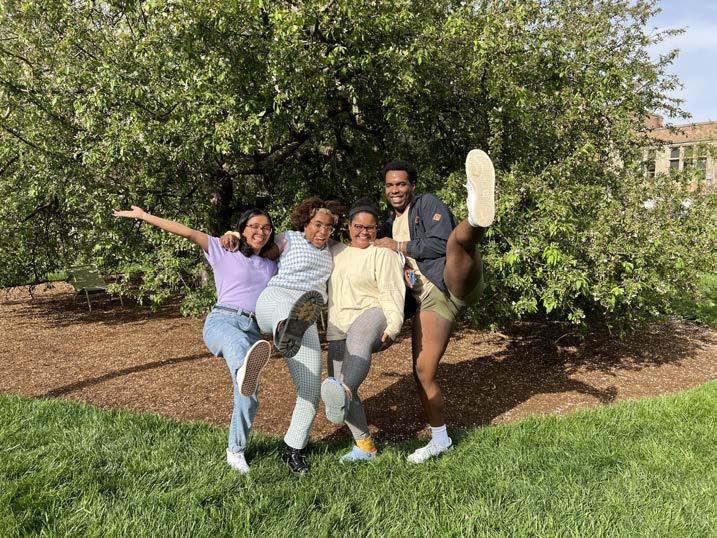
Sarah Del Carmen Camacho: Gaither Junior Fellowship at the Carnegie Endowment for International Peace
Savannah Henderson: MA in Journalism at the University of Missouri
Olivia Kerr: Ph.D. in Africana Studies at the University of Pennsylvania
Marc Ridgell: Ph.D. in Africana Studies at the University of Pennsylvania
Ale Uriostegui: Gap Year before applying to Ph.D. programs in Latin American Studies.
A special shoutout to Sarah, who couldn’t make this photoshoot!
29
Acknowledgments
Mellon Mays Undergraduate Fellowship at Washington University would not be possible without these wonderful individuals.
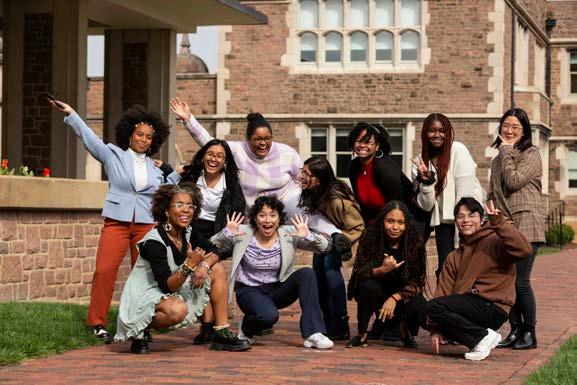
Dean Wilmetta Toliver-Diallo
Administrative Director
Dr. Jonathan Fenderson Faculty Director
Jenny Givens
Administrative Assistant
Christina Smiley Graduate Mentor
Dean Erin McGlothlin
Vice Dean of Undergraduate Affairs, College of Arts & Sciences

Dean Feng Sheng Hu
Dean of Arts & Sciences
Faculty Mentors:
Dr. Rebecca Clouser, Dr. Andrea Friedman, Dr. Rene Esparza, Dr. Michael Esposito, Dr. Linling Gao-Miles, Dr. Clarissa Hayward, Dr. Robin McDowell, Dr. Michelle Purdy, Dr. Vetta SandersThompson, Dr. Ignacio Sanchez-Prado, & Dr. Rebecca Wanzo
31st MMUF WUSTL Cohort:
Leandrea Clay, Zachary Gore, Jermicah Lott, Amanda Young, & Han Zhang
30
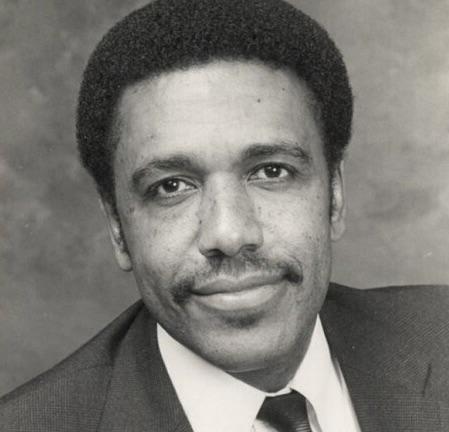
This magazine is dedicated to Dean James McCleod whose legacy will continue through the Washington University Mellon Mays Undergraduate Research Program. 31

32




 Olivia Neale Kerr, 2022-2023 Mellon Intern
Olivia Neale Kerr, 2022-2023 Mellon Intern













 Christina Smiley
Christina Smiley















